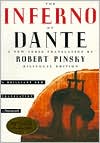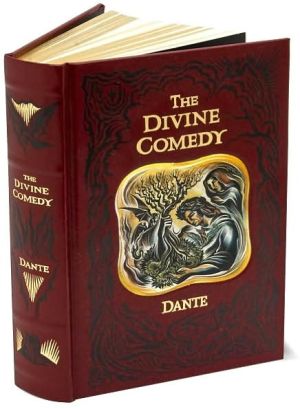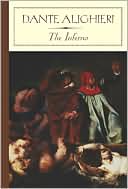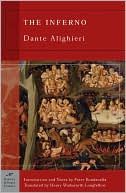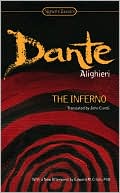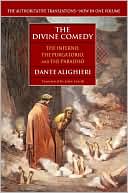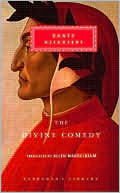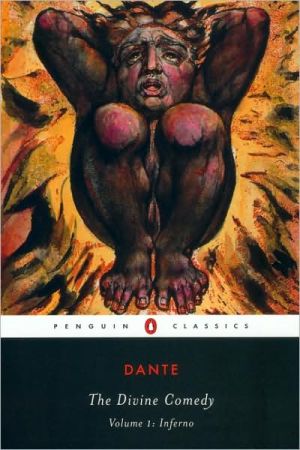The Inferno of Dante: A New Verse Translation
This widely praised version of Dante's masterpiece, which won the Los Angeles Times Book Prize and the Harold Morton Landon Translation Award of the Academy of American Poets, is more idiomatic and approachable than its many predecessors. Former U.S. Poet Laureate Pinsky employs slant rhyme and near rhyme to preserve Dante's terza rima form without distorting the flow of English idiom. The result is a clear and vigorous translation that is also unique, student-friendly, and faithful to the...
Search in google:
This widely praised version of Dante's masterpiece, which won the Los Angeles Times Book Prize and the Harold Morton Landon Translation Award of the Academy of American Poets, is more idiomatic and approachable than its many predecessors. Former U.S. Poet Laureate Pinsky employs slant rhyme and near rhyme to preserve Dante's terza rima form without distorting the flow of English idiom. The result is a clear and vigorous translation that is also unique, student-friendly, and faithful to the original: "A brilliant success," as Bernard Knox wrote in The New York Review of Books.Publishers WeeklyThough transforming Dante's terza rima into readable English has bogged down many a distinguished translator, Pinsky (The Want Bone) more than meets the challenge. His rendering has an efficient feel; the lines seem slimmer and less unwieldy than most contemporary verse translations. Each one of the cantos features a good number of stanzas dominated by monosyllables-his answer, along with intriguing patterns of assonance, to approximating the splendor of Dante's profusion of rhymes, which are impossible to replicate in English. The coherent narration of the translation is also welcome, as it keeps a harness on the sometimes meandering diction of the original. Pinsky's voice is nearly irresistible when rounding out the grotesqueries of Dante's Hell: his versions of the ninth and final circle bring the bizarre terror of the fiery pit to life. Plainspoken yet elegant, this Inferno sustains a tactile succession of images over 34 cantos, and lends itself to being read aloud. Illustrations not seen by PW.
\ From the Publisher\ "Splendid . . . Pinsky's verse translation is fast-paced, idiomatic, and accurate. It moves with the concentrated gait of a lyric poem . . . It maintains the original's episodic and narrative velocity while mirroring its formal shape and character . . . Pinsky succeeds in creating a supple American equivalent for Dante's vernacular music where many others have failed."--Edward Hirsch, The New Yorker\ "Pinsky's rare gifts as a poet, a wild imagination disciplined by an informed commitment to technical mastery, are superbly well suited to the Inferno's immense demands. Pinsky has managed to capture the poem's intense individuality, passion, and visionary imagery. This translation is wonderfully alert to Dante's strange blend of fierceness and sympathy, clear-eyed lucidity and heart-stopping wonder. It is now the premier modern text for readers to experience Dante's power."--Stephen Greenblatt\ "A new translation of Dante's classic poem uses slant rhyme and near rhyme to preserve the original terza rima form without distorting the English meaning, providing a lively and faithful rendition of the poem. " --Ingram\ \ \ \ \ \ \ Publishers Weekly - Publisher's Weekly\ Though transforming Dante's terza rima into readable English has bogged down many a distinguished translator, Pinsky (The Want Bone) more than meets the challenge. His rendering has an efficient feel; the lines seem slimmer and less unwieldy than most contemporary verse translations. Each one of the cantos features a good number of stanzas dominated by monosyllables-his answer, along with intriguing patterns of assonance, to approximating the splendor of Dante's profusion of rhymes, which are impossible to replicate in English. The coherent narration of the translation is also welcome, as it keeps a harness on the sometimes meandering diction of the original. Pinsky's voice is nearly irresistible when rounding out the grotesqueries of Dante's Hell: his versions of the ninth and final circle bring the bizarre terror of the fiery pit to life. Plainspoken yet elegant, this Inferno sustains a tactile succession of images over 34 cantos, and lends itself to being read aloud. Illustrations not seen by PW.\ \ \ Library JournalSince Charles Rogers published the first complete translation of the Inferno in 1782, nearly 80 versions of Dante's masterpiece have appeared in English. Poet Pinsky (English, Boston Coll.) offers another. This book includes the Italian version at the end of the book, notes on textual allusions, a foreword by scholar John Freccero, and illustrations by Michael Mazur. Unlike other modern verse translations, notably those of Dorothy Sayers, John Ciardi, and Allen Mandelbaum, Pinsky's attempts to capture Dante's terza rima, the interlocking rhyme scheme aba, bcb, cdc, etc., which is difficult to sustain in English. A good poet, Pinsky is fluent if less literal than Ciardi and Mandelbaum, flattening Dante's diction. His version is a pleasure to read, but ultimately it does not supersede Ciardi's or Mandelbaum's.-T.L. Cooksey\ \
